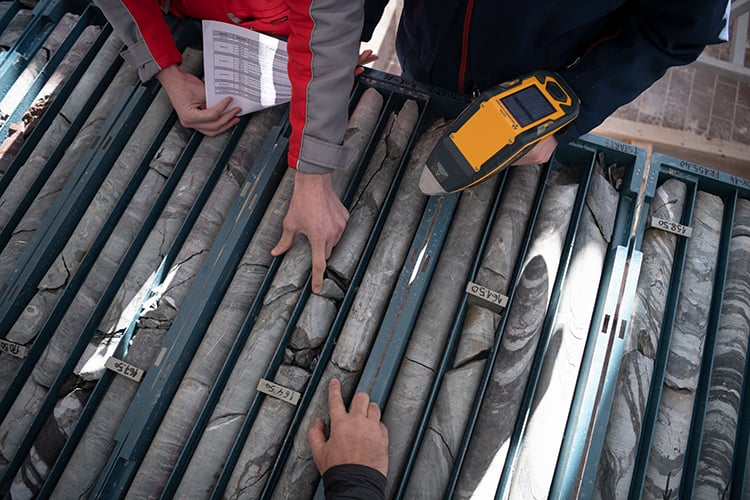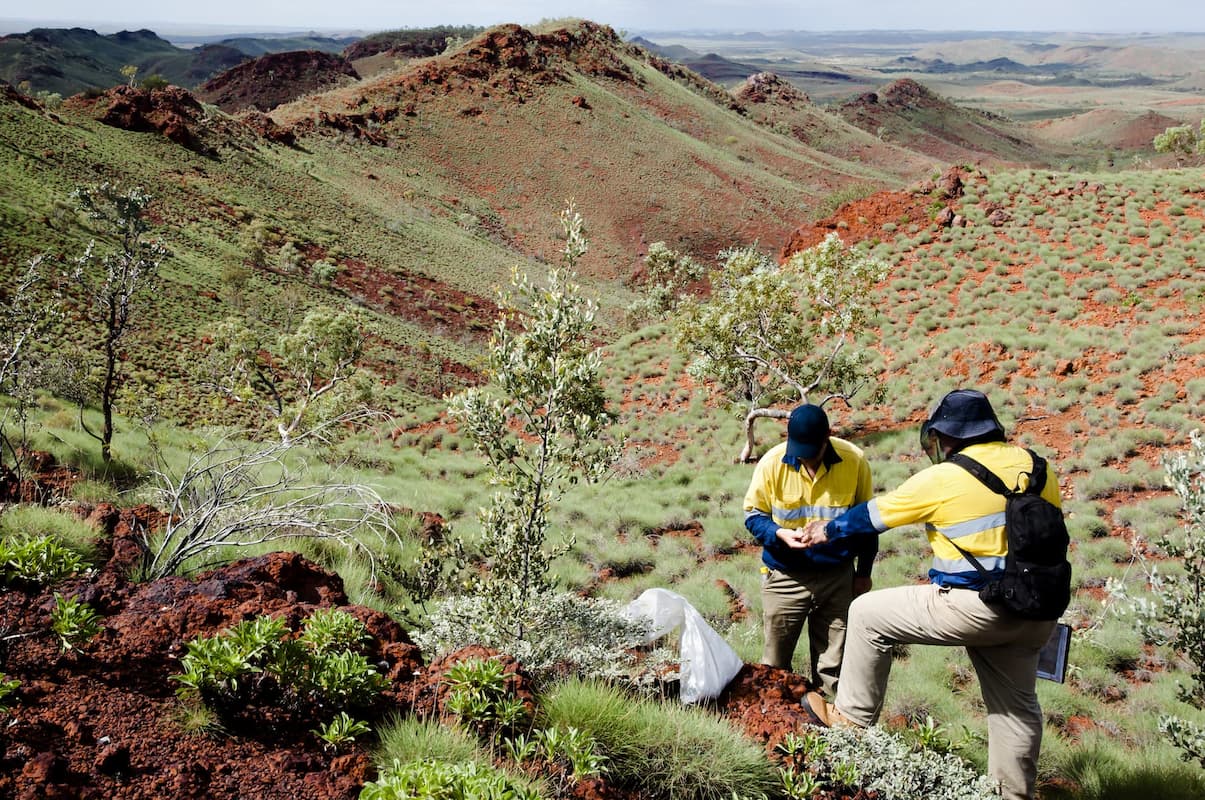Geologists are in demand
Geoscientists play an important role in locating and optimising mineral, water and energy sources, making them invaluable to the mining sector. Australian mining ventures depend upon geological, geochemical and geophysical investigation to ensure the accurate detection and optimal extraction of mined commodities.
Whether working with minerals, fossils, soils, oceans, or energy sources, geoscientists are front and centre: collecting samples, analysing data and mapping out the best way forward.





A world of possibilities
The field of geoscience offers excellent variety and challenge – you might find yourself in the office one day, the lab the next, then out in the field the day after. Success in these roles require an interest in the natural world, strong scientific and technical skills, a methodical approach to problem solving and keen eye for detail.
Success in these roles require an interest in the natural world, strong scientific and technical skills, a methodical approach to problem solving and a keen eye for detail. A good level of fitness and strong communication – both written and verbal – are also essential to meeting the demands of geoscience jobs.
We're always looking for qualified geoscience professionals

Geoscience careers
Brunel recruits across a range of geoscience roles, including:
- Rig geologists
- Hydrogeologists
- Diamond core geologists
- Field geologists
- Exploration geologists
- Field Technicians
- Geology Managers

Employment opportunities
Given the wide variety of valuable metals and mineral ores found throughout Australia, there are many employment opportunities for geologists across multiple states and territories, however the majority of these prospects exist within Western Australia.
Typically, geologists in WA will base themselves in Perth and receive employer paid transport to remote sites in the Pilbara and Goldfields on a fly-in-fly-out (FIFO) basis.
Common geology roletypes in the mining industry
Hydrogeologist
Rig Geologist
Rig Geologists play an important role in the exploration phase of mining, drawing on their orebody expertise to guide and optimise drilling operations. Responsibilities range from exploration planning and mapping, drill rig supervision, and geological logging and sampling, to analysing and interpreting exploration data.
Diamond Core Geologist
Field Geologist
As the name implies, Field Geologists study the earth components of a field, analyse various natural occurrences that affect that field (such as earthquakes, volcanic eruptions, landslides, etc), and monitor the natural evolution of a field over time. Field Geologists play a critical role in mining exploration, as they are responsible for identifying the location, quality and quantity of mineral deposits. Duties range from collecting samples in the field, mapping rock formations and studying natural disasters, to interpreting data in the office and presenting the learnings to relevant stakeholders.
Exploration Geologist
Field Technician
Geology Managers
As part of the leadership team, Geology Managers play an important role in overseeing exploration, resource modelling, and drilling operations within a mining company. They are responsible for managing budgets; training and mentoring teams; reporting, planning and executing projects; and identifying opportunities for growth and optimisation within an organisation.
Are you ready to take the next step in your career?
Whether you are a recent geoscience graduate or have several years of experience under your belt, Brunel can connect you with a variety of permanent or contract-based geology roles in the Australian mining industry.
Our specialist recruiters take the time to listen and understand your unique skills, experience and career goals before matching you with the most suitable clients. Get in touch to discuss where you want to be and how Brunel can get you there.

